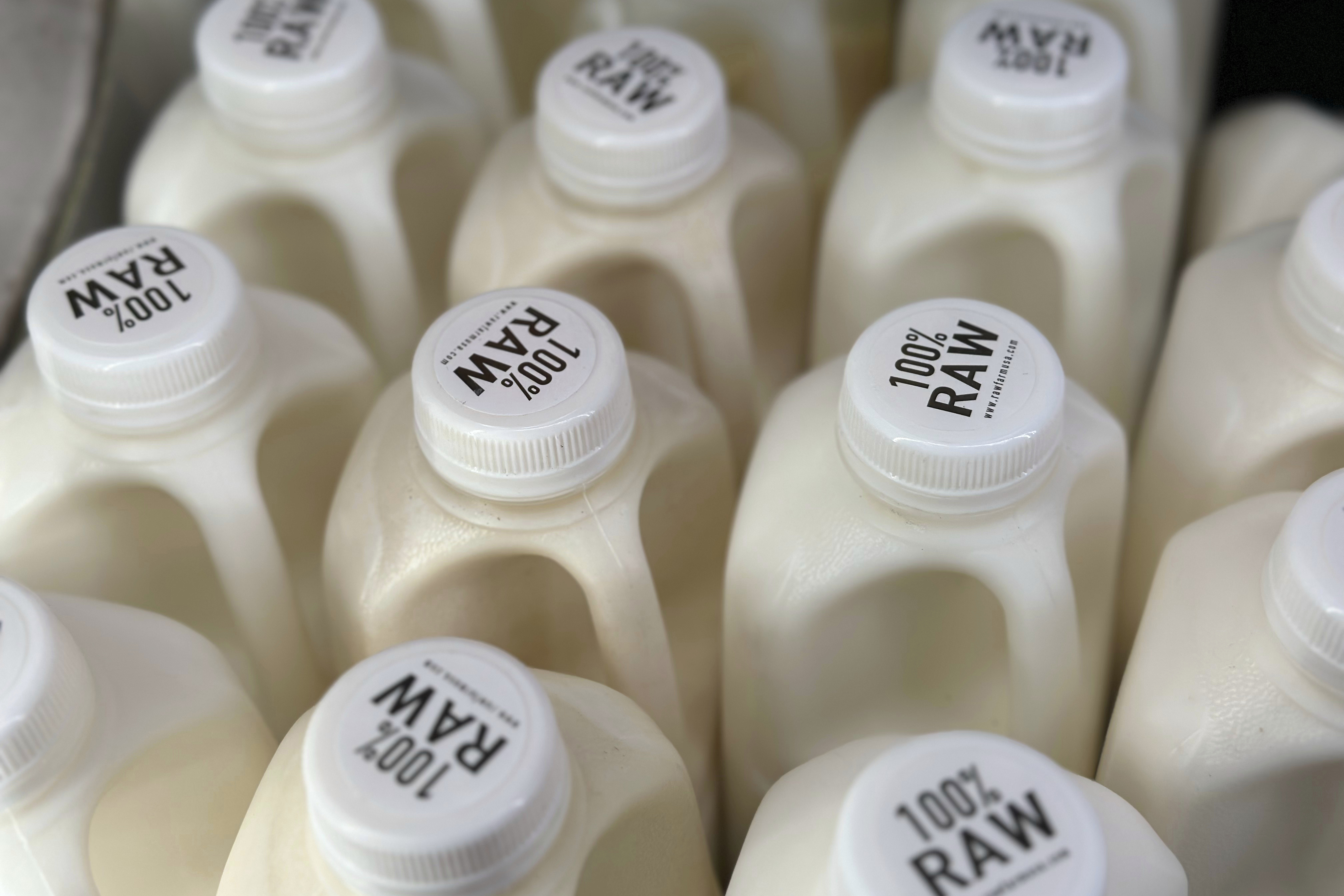Raw Farm, a dairy farm located in Fresno County, California, issued a voluntary recall on Nov. 24 of its raw milk product on Sunday following the detection of avian influenza in a retail sample.
The company said in a statement that it was recalling a single lot of its cream top, whole raw milk products with lot code 20241109 with an expiration date of Nov. 27.
The recall was initiated after the County of Santa Clara Public Health Laboratory detected the bird flu virus in a raw milk sample that was being sold at a retail store in California.
The case was later verified by the California Animal Health and Food Safety Laboratory System, according to a statement by the California Department of Public Health (CDPH).
Raw Farm has urged stores to remove the products from their shelves and advised consumers to return the affected milk to the stores where they purchased it for a refund or free replacement.
The CDPH warned people against consuming the product and stated that no illnesses have been reported in connection with the raw milk.
“Out of an abundance of caution, and due to the ongoing spread of bird flu in dairy cows, poultry, and sporadic human cases, consumers should not consume any of the affected raw milk,” it stated.
The CDPH stated that it conducted testing at the company’s farms following the detection, and the results came back negative for bird flu. The department said it will continue to test the farm’s milk twice a week.
Those who have consumed the affected milk and developed symptoms were urged to immediately contact their health care provider or local health department.
Health officials stated that bird flu infection could also occur if someone touches their eyes, nose, or mouth with unwashed hands after handling raw milk contaminated with the virus.
Symptoms of bird flu infection may include eye redness, cough, sore throat, runny nose, diarrhea, vomiting, body aches, headaches, fatigue, and fever.
Raw milk is milk from cows, sheep, goats, or any other animal that has not been pasteurized—a heating process that is adopted to kill harmful microorganisms.
Advocates said that raw milk contains more nutrients, fats, proteins, and other nutritional benefits compared to pasteurized milk. Raw milk proponents said that consumption of raw milk has been linked to lower rates of allergies and eczema.
The U.S. Food and Drug Administration (FDA) has warned that raw milk may contain salmonella, E. coli, and listeria, which can pose “serious health risks” to some consumers and cause food poisoning.
According to the FDA, these bacteria can cause illness in sick children, the elderly, pregnant women, and individuals with weakened immune systems from underlying conditions such as diabetes and cancer.
California has detected 29 human cases of bird flu since October, with all but one case involving direct contact with infected dairy cows. All cases have experienced only mild symptoms, such as eye infections, according to the state health department.













